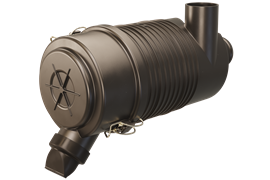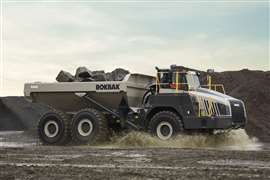Jammed up
16 October 2017
According to a report developed earlier this year by the American Transportation Research Institute (ATRI), the trucking industry is uniquely impacted by the level of traffic congestion experienced on the U.S. roadway network.
In fact, according to the study, “… congestion increases motor carrier operating costs through wasted fuel, increased labor costs, vehicle wear and tear and puts additional stresses on professional drivers, as available on-duty and drive hours are spent sitting in traffic – which anecdotally contributes to the truck driver shortage crisis.”
Secondary impacts include inflationary effects from inefficiencies in the nation’s supply chain, as pick-up and delivery schedules are impacted by traffic delays.
The study also revealed that, in 2014, ATRI commenced research to quantify and monetize the impact of traffic congestion on the trucking industry using U.S. Interstate Highway System data from 2012 and 2013. Building on this research, ATRI re-examined congestion impacts on the industry in 2016, using 2014 data.
“The primary tasks of the 2016 research included the development of a revised standardized methodology to facilitate the continual monitoring of congestion impacts on a year-over-year basis,” said the report’s author, and ATRI Research Associate, W. Ford Torrey, IV – who explained that the information also established 2014 as a base-year of comparison for future iterations of the study. He also revealed that the continued growth of ATRI’s freight truck global positioning system database facilitated an expanded analysis to include the entire U.S. National Highway System (NHS).
More delays, higher costs
Ultimately, the report shows, in part, that increases in work zones/road construction, urban truck miles, e-commerce growth and national vehicle registrations likely explain the plurality of congestion impacts.
More specifically, ATRI expounded on some of the 2015 congestion impacts, highlighted by a dramatic increase in traffic incidents, including a 7.2 percent increase in fatalities from motor vehicle crashes on U.S. roadways – the largest percentage increase in nearly 50 years.
“Similar to the previous year’s report, this 2017 analysis focuses on delay associated with weekday traffic congestion on the NHS,” added Torrey, “with a high-level analysis of local roads presented at the end of the report. The results of these analyses are compared to the 2014 benchmarks to identify congestion trends.”
Some notable numbers from the study: in 2015, the trucking industry experienced over 996 million hours of delay on the NHS as a result of traffic congestion – the equivalent of 362,243 commercial truck drivers sitting idle for an entire working year. Applying the 2015 national average operational cost per hour of $63.70 equated to more than $63.4 billion in added industry operational costs due to congestion.
“Distributing this cost across the 11.2 million registered large trucks in the U.S. results in an average congestion cost per truck of $5,664,” ATRI indicated – noting that the actual cost for any one truck is dependent on a variety of factors, such as location of operation and operating sector.
Spreading the total congestion cost figure across the entirety of the NHS network shows the average cost on any given mile of the NHS. This resulted in an average industry cost per mile of $129,919.
While the totality of ATRI’s report covers a vast range of numbers and trends (and should be read to grasp such totality), it should be highlighted that, of the top ten states (based on cost per NHS segment mile in 2015), all but seven experienced an increase in congestion costs, with three of those states experiencing an increase of over $1 billion each. Much of the congestion cost was heavily concentrated in urban areas, with $10.6 billion (76.4 percent) contained in metropolitan areas.
For more information please visit




